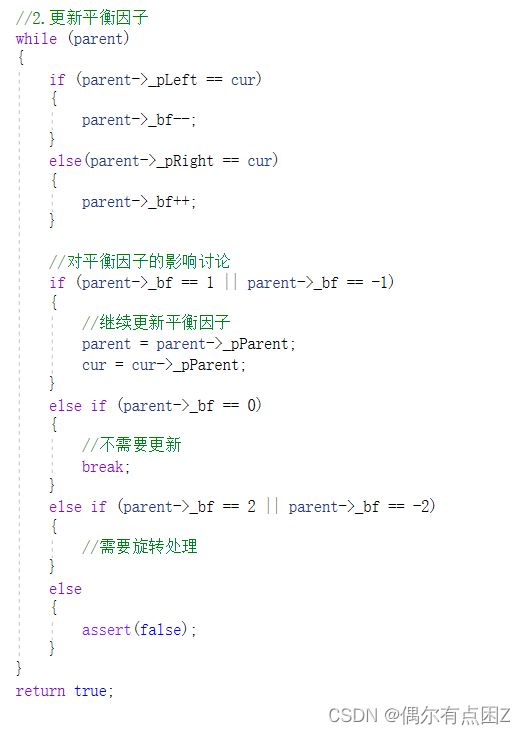- Redis 分布式锁实现与实践
佑瞻
数据库与知识图谱redis分布式数据库
在分布式系统架构中,多个独立进程对共享资源的并发访问控制是常见需求,分布式锁作为解决这一问题的关键技术,在缓存更新、任务调度、库存管理等场景中发挥着重要作用。本文将从基础原理出发,详细阐述基于Redis的分布式锁实现方案,包括单实例模式与Redlock算法,并探讨其在实际应用中的关键考量。分布式锁核心概念分布式锁是一种跨进程、跨机器的同步机制,用于保证多个分布式节点对共享资源的互斥访问。一个可靠的
- 布隆过滤器详解及使用:解决缓存穿透问题
豪宇刘
缓存哈希算法散列表
在现代应用开发中,缓存技术被广泛应用于提升系统性能和响应速度。然而,缓存系统也带来了一些新的挑战,如缓存穿透、缓存击穿和缓存雪崩等问题。一、什么是布隆过滤器?布隆过滤器是一种空间效率很高的概率型数据结构,用于判断一个元素是否在一个集合中。它的优点是高效且占用内存少,但有一定的误判率(即可能会错误地认为某个不在集合中的元素存在于集合中),不过它不会漏报(即如果一个元素确实不在集合中,布隆过滤器一定能
- Unity Netcode自定义数据传输——结构体及其序列化
未来的中科院院士
unity游戏引擎
在UnityNetcode中,要实现自定义数据的网络传输,确实需要两个关键部分:✅两个必需组件:数据结构定义publicstructPlayerState:INetworkSerializable{publicintid;//字段1:玩家IDpublicboolisReady;//字段2:准备状态//...其他字段}作用:定义要传输的数据内容本质:声明"要传输什么"序列化方法实现publicvoi
- 使用工厂模式和策略模式实现布隆过滤器
小菜0-o
策略模式
使用工厂模式和策略模式实现布隆过滤器的大概流程如下:定义布隆过滤器接口:首先定义一个布隆过滤器接口,包括添加元素和判断元素是否存在两个基本操作。实现具体的布隆过滤器类:创建一个具体的布隆过滤器类,实现布隆过滤器接口中的方法。在这个类中,需要定义布隆过滗器的数据结构(比如位数组)、大小等属性。定义哈希策略接口:定义一个哈希策略接口,包含计算哈希值的方法。实现具体的哈希策略类:创建多个具体的哈希策略类
- 【机器学习-08】参数调优宝典:网格搜索与贝叶斯搜索等攻略
云天徽上
机器学习机器学习人工智能
博主简介:曾任某智慧城市类企业算法总监,目前在美国市场的物流公司从事高级算法工程师一职,深耕人工智能领域,精通python数据挖掘、可视化、机器学习等,发表过AI相关的专利并多次在AI类比赛中获奖。CSDN人工智能领域的优质创作者,提供AI相关的技术咨询、项目开发和个性化解决方案等服务,如有需要请站内私信或者联系任意文章底部的的VX名片(ID:xf982831907)博主粉丝群介绍:①群内初中生、
- 【2025B卷专题】华为OD机试2025B卷统一考试题库清单,时间紧张就刷这个
专栏导读本专栏收录于《华为OD机试(JAVA)真题(B卷+A卷+C卷+D卷+E卷)》。刷的越多,抽中的概率越大,私信哪吒,备注华为OD,加入华为OD刷题交流群,每一题都有详细的答题思路、详细的代码注释、3个测试用例、为什么这道题采用XX算法、XX算法的适用场景,发现新题目,随时更新,全天CSDN在线答疑。2025年5月12日,华为官方已经将华为OD机试(A卷)切换为B卷。目前正在考的是B卷,按照华
- 【2025B卷专题】华为OD机试2025B卷统一考试题库清单,时间紧张就刷这个(Python/JS/C/C++)
哪 吒
搬砖工逆袭Java架构师华为odpythonjavascript华为OD机试2025B卷
专栏导读本专栏收录于《华为OD机试真题(Python/JS/C/C++)》。刷的越多,抽中的概率越大,私信哪吒,备注华为OD,加入华为OD刷题交流群,每一题都有详细的答题思路、详细的代码注释、3个测试用例、为什么这道题采用XX算法、XX算法的适用场景,发现新题目,随时更新。2025年5月12日,华为官方已经将华为OD机试(A卷)切换为B卷。目前正在考的是B卷,按照华为OD往常的操作,B卷题目是由往
- 【全网首发】华为OD机试 2025B卷 机考真题库清单(全真题库)含考点说明
哪 吒
搬砖工逆袭Java架构师华为odjava2025B卷华为OD机试
专栏导读本专栏收录于《华为OD机试(JAVA)真题(E卷+D卷+A卷+B卷+C卷)》。刷的越多,抽中的概率越大,私信哪吒,备注华为OD,加入华为OD刷题交流群,每一题都有详细的答题思路、详细的代码注释、3个测试用例、为什么这道题采用XX算法、XX算法的适用场景,发现新题目,随时更新,全天CSDN在线答疑。2025年5月12日,华为官方已经将华为OD机试(A卷)切换为B卷。目前正在考的是B卷,按照华
- 【2025B卷首发】华为OD机试真题+全流程解析+备考攻略+经验分享+Java最佳实现
专栏导读本专栏收录于《华为OD机试(JAVA)真题(E卷+D卷+A卷+B卷+C卷)》。刷的越多,抽中的概率越大,私信哪吒,备注华为OD,加入华为OD刷题交流群,每一题都有详细的答题思路、详细的代码注释、3个测试用例、为什么这道题采用XX算法、XX算法的适用场景,发现新题目,随时更新,全天CSDN在线答疑。2025年5月12日,华为官方已经将华为OD机试(A卷)切换为B卷。目前正在考的是B卷,按照华
- PyTorch 在 Python 自然语言处理中的运用
Python编程之道
Python编程之道pythonpytorch自然语言处理ai
PyTorch在Python自然语言处理中的运用关键词:PyTorch,Python,自然语言处理,深度学习,文本分类,情感分析摘要:本文全面探讨了PyTorch在Python自然语言处理(NLP)领域的运用。首先介绍了相关背景知识,包括目的范围、预期读者等内容。接着详细阐述了核心概念,如词嵌入、循环神经网络等,并给出了相应的原理示意图和流程图。深入讲解了核心算法原理,结合Python代码进行详细
- 后端领域的自然语言处理技术应用
大厂资深架构师
SpringBoot开发实战自然语言处理easyui人工智能ai
后端领域的自然语言处理技术应用关键词:后端领域、自然语言处理、技术应用、算法原理、实际案例摘要:本文聚焦于后端领域中自然语言处理技术的应用。首先介绍了相关背景,包括目的范围、预期读者等。接着阐述核心概念与联系,通过文本示意图和Mermaid流程图展示其原理和架构。详细讲解了核心算法原理并给出Python源代码示例,同时介绍了数学模型和公式。通过项目实战,展示代码实际案例并进行详细解释。分析了自然语
- redis做同步或异步队列
瞧着不像好人呐
redisredisjava数据库
redis实现队列主要是使用数据结构中的list,相当于Java中的ArrayList因为它是按照塞入顺序排序的结构,我们就可以按照左边塞入,右边取出的方式来实现先入先出的队列需求。publicvoidrpush(Stringkey,Stringvalue){Jedisjedis=null;try{jedis=jedisPool.getResource();jedis.rpush(key,valu
- Hutool TreeUtil快速构建树形数据结构
yifanghub
工具类java
在管理菜单、部门结构等场景时,我们经常需要将数据库中的层级数据转换为树形结构。本文将通过Hutool的TreeUtil工具类,实现零递归快速构建树形结构。一、环境准备JDK1.8+SpringBoot2.xHutool5.8.16MySQL8.0二、数据准备--创建部门表CREATETABLE`sys_dept`(`id`intNOTNULLAUTO_INCREMENT,`dept_name`va
- Camera相机人脸识别系列专题分析之十六:人脸特征检测FFD算法之libcvface_api.so数据结构详细注释解析
一起搞IT吧
数码相机算法数据结构人工智能android图像处理计算机视觉
【关注我,后续持续新增专题博文,谢谢!!!】上一篇我们讲了:这一篇我们开始讲:Camera相机人脸识别系列专题分析之十六:人脸特征检测FFD算法之libcvface_api.so数据结构详细注释解析目录一、libcvface_api.so数据结构详细注释解析一、libcvface_api.so数据结构详细注释解析///@brief人脸信息结构体typedefstructcv_face_t{cv_r
- 四、Actor-Critic Methods
沈夢昂志
DRL深度强化学习python深度学习
由于在看DRL论文中,很多公式都很难理解。因此最近在学习DRL的基本内容。再此说明,非常推荐B站“王树森老师的DRL强化学习”本文的图表及内容,都是基于王老师课程的后自行理解整理出的内容。目录A.书接上回1、Reinforce算法B.State-ValueFunctionC.PolicyNetWork(Actor)D.ActionValueNetwork(Critic)E.TraintheNeur
- Char Studio 使用入门:高效构建企业级对话系统的实战指南
charles666666
人工智能产品经理语言模型自然语言处理架构
数字化浪潮推动下,企业与用户的交互模式正经历深刻变革,对话系统作为核心交互手段,其重要性日益凸显。然而,众多企业在构建对话系统时,却深陷诸多困境,难以自拔。一、开篇痛点场景:企业对话系统开发的典型困境企业在自行开发对话系统时,往往面临预算超支、周期漫长以及维护成本居高不下等问题。开发团队需要投入大量时间和精力进行底层技术架构的搭建,例如自然语言处理算法的研究、对话逻辑的设计等,这不仅消耗了大量的人
- Pandas 学习(数学建模篇)
停走的风
数学建模pandas学习
今天学习数学建模2023年C篇(228)优秀论文2023高教社杯全国大学生数学建模竞赛C题论文展示(C228)-2023C题论文-中国大学生在线一.pd.DataFramepd.DataFrame()是pandas库中用于创建二维表格数据结构(DataFrame)的核心函数。它的作用是将各种格式的数据(如字典、列表、Series等)转换为带有行索引和列标签的表格形式,便于数据处理和分析.impor
- AI驱动的个人工作革命:基于DeepSeek构建全场景智能工作助理(含源代码+多应用场景)
AI_DL_CODE
DeepSeek深度应用人工智能DeepSeek个人智能助理LangChain任务自动化知识管理大模型应用
摘要:本文详细阐述基于DeepSeek大模型构建个人工作助理的完整技术方案,通过LangChain实现任务分解、知识检索与工具调用的智能协同。方案融合向量数据库、多模态交互与个性化学习算法,构建涵盖邮件处理、会议管理、文档生成等15大核心工作场景的自动化系统。文中提供可运行代码、完整部署指南及效能测试数据,实现邮件处理效率提升13倍、会议纪要生成时间缩短100%、任务安排错误率降低83%的显著优化
- python中的pydantic是什么?
John Song
Pythonpython前端开发语言pydantic
Pydantic是Python中一个用于数据验证和设置管理的库,主要通过Python类型注解(TypeHints)来定义数据结构,并自动验证输入数据的合法性。它广泛应用于API开发(如FastAPI)、配置管理、数据序列化等场景。核心功能数据验证自动检查输入数据是否符合类型和约束条件(如字符串长度、数字范围等)。类型转换将原始数据(如JSON、字典)转换为Python类型(如datetime、En
- 异物检测的计算机视觉算法技术路线
思绪漂移
计算机视觉算法人工智能
异物检测的计算机视觉算法技术路线在现代智能监测系统中,异物检测有着其必要性和运维重要性,通过计算机视觉算法,可以实时识别各种异常物体,为设备安全运行提供有力保障。本文将介绍异物检测的主要技术路线。一、分类识别适应场景分类识别技术主要适用于已知目标类别的异物检测场景。在运维环境中,这类场景包括:固定区域内的障碍物监测(如轨道区域的石块、工具、动物等)关键部件的异物附着检测(如固定装置上的杂物)安全通
- PageRank:互联网的马尔可夫链平衡态
大千AI助手
人工智能Python#OTHER人工智能机器学习条件概率贝叶斯PageRank马尔科夫链MC
本文由「大千AI助手」原创发布,专注用真话讲AI,回归技术本质。拒绝神话或妖魔化。搜索「大千AI助手」关注我,一起撕掉过度包装,学习真实的AI技术!PageRank算法本质上是一个在网页图上定义的离散时间马尔可夫链(DTMC),其核心思想是将网页间的链接关系转化为状态转移概率。以下是详细分析:一、马尔可夫链的核心要素在PageRank中的体现马尔可夫链要素PageRank对应数学描述状态空间网页集
- MCMC:高维概率采样的“随机游走”艺术
大千AI助手
人工智能Python#OTHER人工智能数据挖掘机器学习算法MCMC马尔科夫概率论
MCMC(马尔可夫链蒙特卡洛)是一种从复杂概率分布中高效采样的核心算法,它解决了传统采样方法在高维空间中的“维度灾难”问题。以下是其技术本质、关键算法及实践的深度解析:本文由「大千AI助手」原创发布,专注用真话讲AI,回归技术本质。拒绝神话或妖魔化。搜索「大千AI助手」关注我,一起撕掉过度包装,学习真实的AI技术!一、MCMC要解决的核心问题目标:从目标分布(π(x)\pi(\mathbf{x})
- LeetCode 刷题:数据结构与算法的实战经验分享
LeetCode刷题:数据结构与算法的实战经验分享关键词:LeetCode、数据结构、算法、刷题经验、实战摘要:本文将围绕LeetCode刷题展开,深入探讨数据结构与算法在实际刷题过程中的应用。通过分享实战经验,帮助读者更好地理解和掌握数据结构与算法知识,提升解题能力。文章将从背景介绍入手,阐述刷题的目的和意义,接着详细解释核心概念,分析它们之间的关系,然后介绍核心算法原理和具体操作步骤,结合数学
- 高压电缆护层电流监测系统的技术实现
李子圆圆
人工智能
目录文章目录概要高精度电流监测的技术实现多级预警机制的构建逻辑极端环境下的稳定运行技术远程运维的技术支撑概要高压电缆护层作为电力传输的关键防护结构,其接地电流的异常变化是判断设备状态的重要指标。TLKS-PLGD高压电缆护层电流监测系统通过传感器技术与智能算法的结合,构建了一套完整的电缆安全监测方案。高精度电流监测的技术实现高精度电流监测的技术实现护层电流监测的核心在于数据采集的精准性。该系统采用
- 构建安全密码存储策略:核心原则与最佳实践
weixin_47233946
信息安全安全
密码是用户身份认证的第一道防线,其存储安全性直接关系到用户隐私和企业信誉。近年来频发的数据泄露事件揭示了密码管理的关键性。本文将深入探讨从加密算法到系统性防护的完整密码存储方案,帮助开发者构建企业级安全防御体系。一、密码存储基本准则绝对禁止明文存储:即使采用数据库加密措施,直接存储用户原始密码仍存在不可逆泄露风险。运维人员权限滥用或备份文件泄露都可能成为突破口。加密≠安全:AES等对称加密存在密钥
- 数据结构实验解析(C++版)——实验一 复杂度分析
拯救三金
数据结构c++算法
目录一、实验例题例题1例题2二、实验原理与背景知识1、实验原理2、背景知识三、解题思路与算法1、解题思路2、算法四、代码实现例题1代码例题2代码五、实验结果分析与总结1、实验结果分析2、该实验与数据结构的联系一、实验例题例题1时间空间限制时间限制:1SEC空间限制:128MB问题描述分析以下代码:for(i=1;iusingnamespacestd;intmain(){longlongn;//输入
- Spring Data Neo4j 与后端人工智能算法的数据交互
AI大模型应用实战
springneo4j人工智能ai
SpringDataNeo4j与后端人工智能算法的数据交互关键词:SpringDataNeo4j、图数据库、人工智能算法、数据交互、知识图谱、图神经网络、数据集成摘要:本文深入探讨了如何利用SpringDataNeo4j框架实现后端人工智能算法与图数据库的高效数据交互。文章首先介绍了图数据库和人工智能算法的基本概念,然后详细解析了SpringDataNeo4j的核心架构和原理。接着,通过实际代码示
- 【数据结构】复杂度分析
目录一、算法1.基本概念2.描述方法3.算法效率二、算法的时间复杂度三、算法的空间复杂度一、算法1.基本概念通俗的讲,算法是解决问题的方法,比如在现实生活中一道菜谱,一个安装轮椅的操作指南等。严格的说,算法是对特定问题求解步骤的一种描述,是指令的有限序列。算法具有的基本特性有:(1)有穷性。一个算法必须总是在执行有穷步之后结束,且每一步都在有求时间内完成。(2)确定性。算法中的每一条指令必须有确切
- C语言指针进阶完全指南:从多级指针到函数指针的深度探索
给老吕螺丝
#C语言c语言开发语言
掌握指针基础后,你将开启C语言真正的力量之门。本文通过实战代码示例和内存布局图解,带你系统攻克指针进阶技术。一、指针核心回顾与进阶重点核心概念:指针本质:存储内存地址的变量间接访问:通过地址操作数据指针大小:64位系统固定8字节(与类型无关)进阶重点:多级指针:处理复杂间接关系动态内存管理:精准控制内存生命周期函数指针:实现代码抽象与回调复杂结构:构建链表等动态数据结构二、多级指针:指针的指针内存
- 视觉算法之卷积神经网络
清风AI
深度学习算法详解及代码复现计算机视觉cnn神经网络深度学习python课程设计毕业设计
定义与特点卷积神经网络(ConvolutionalNeuralNetwork,CNN)是一种专为处理具有网格结构的数据而设计的深度学习模型。其独特的结构和功能使其在图像处理、语音识别等领域展现出卓越的性能:CNN的核心设计理念源于对生物视觉系统的模仿。通过模拟大脑皮层中视网膜和视觉皮层的层次化结构,CNN能够有效地捕捉图像中的局部特征并逐步抽象为高层语义信息。这种设计使得CNN特别擅长处理图像和音
- ios内付费
374016526
ios内付费
近年来写了很多IOS的程序,内付费也用到不少,使用IOS的内付费实现起来比较麻烦,这里我写了一个简单的内付费包,希望对大家有帮助。
具体使用如下:
这里的sender其实就是调用者,这里主要是为了回调使用。
[KuroStoreApi kuroStoreProductId:@"产品ID" storeSender:self storeFinishCallBa
- 20 款优秀的 Linux 终端仿真器
brotherlamp
linuxlinux视频linux资料linux自学linux教程
终端仿真器是一款用其它显示架构重现可视终端的计算机程序。换句话说就是终端仿真器能使哑终端看似像一台连接上了服务器的客户机。终端仿真器允许最终用户用文本用户界面和命令行来访问控制台和应用程序。(LCTT 译注:终端仿真器原意指对大型机-哑终端方式的模拟,不过在当今的 Linux 环境中,常指通过远程或本地方式连接的伪终端,俗称“终端”。)
你能从开源世界中找到大量的终端仿真器,它们
- Solr Deep Paging(solr 深分页)
eksliang
solr深分页solr分页性能问题
转载请出自出处:http://eksliang.iteye.com/blog/2148370
作者:eksliang(ickes) blg:http://eksliang.iteye.com/ 概述
长期以来,我们一直有一个深分页问题。如果直接跳到很靠后的页数,查询速度会比较慢。这是因为Solr的需要为查询从开始遍历所有数据。直到Solr的4.7这个问题一直没有一个很好的解决方案。直到solr
- 数据库面试题
18289753290
面试题 数据库
1.union ,union all
网络搜索出的最佳答案:
union和union all的区别是,union会自动压缩多个结果集合中的重复结果,而union all则将所有的结果全部显示出来,不管是不是重复。
Union:对两个结果集进行并集操作,不包括重复行,同时进行默认规则的排序;
Union All:对两个结果集进行并集操作,包括重复行,不进行排序;
2.索引有哪些分类?作用是
- Android TV屏幕适配
酷的飞上天空
android
先说下现在市面上TV分辨率的大概情况
两种分辨率为主
1.720标清,分辨率为1280x720.
屏幕尺寸以32寸为主,部分电视为42寸
2.1080p全高清,分辨率为1920x1080
屏幕尺寸以42寸为主,此分辨率电视屏幕从32寸到50寸都有
适配遇到问题,已1080p尺寸为例:
分辨率固定不变,屏幕尺寸变化较大。
如:效果图尺寸为1920x1080,如果使用d
- Timer定时器与ActionListener联合应用
永夜-极光
java
功能:在控制台每秒输出一次
代码:
package Main;
import javax.swing.Timer;
import java.awt.event.*;
public class T {
private static int count = 0;
public static void main(String[] args){
- Ubuntu14.04系统Tab键不能自动补全问题解决
随便小屋
Ubuntu 14.04
Unbuntu 14.4安装之后就在终端中使用Tab键不能自动补全,解决办法如下:
1、利用vi编辑器打开/etc/bash.bashrc文件(需要root权限)
sudo vi /etc/bash.bashrc
接下来会提示输入密码
2、找到文件中的下列代码
#enable bash completion in interactive shells
#if
- 学会人际关系三招 轻松走职场
aijuans
职场
要想成功,仅有专业能力是不够的,处理好与老板、同事及下属的人际关系也是门大学问。如何才能在职场如鱼得水、游刃有余呢?在此,教您简单实用的三个窍门。
第一,多汇报
最近,管理学又提出了一个新名词“追随力”。它告诉我们,做下属最关键的就是要多请示汇报,让上司随时了解你的工作进度,有了新想法也要及时建议。不知不觉,你就有了“追随力”,上司会越来越了解和信任你。
第二,勤沟通
团队的力
- 《O2O:移动互联网时代的商业革命》读书笔记
aoyouzi
读书笔记
移动互联网的未来:碎片化内容+碎片化渠道=各式精准、互动的新型社会化营销。
O2O:Online to OffLine 线上线下活动
O2O就是在移动互联网时代,生活消费领域通过线上和线下互动的一种新型商业模式。
手机二维码本质:O2O商务行为从线下现实世界到线上虚拟世界的入口。
线上虚拟世界创造的本意是打破信息鸿沟,让不同地域、不同需求的人
- js实现图片随鼠标滚动的效果
百合不是茶
JavaScript滚动属性的获取图片滚动属性获取页面加载
1,获取样式属性值
top 与顶部的距离
left 与左边的距离
right 与右边的距离
bottom 与下边的距离
zIndex 层叠层次
例子:获取左边的宽度,当css写在body标签中时
<div id="adver" style="position:absolute;top:50px;left:1000p
- ajax同步异步参数async
bijian1013
jqueryAjaxasync
开发项目开发过程中,需要将ajax的返回值赋到全局变量中,然后在该页面其他地方引用,因为ajax异步的原因一直无法成功,需将async:false,使其变成同步的。
格式:
$.ajax({ type: 'POST', ur
- Webx3框架(1)
Bill_chen
eclipsespringmaven框架ibatis
Webx是淘宝开发的一套Web开发框架,Webx3是其第三个升级版本;采用Eclipse的开发环境,现在支持java开发;
采用turbine原型的MVC框架,扩展了Spring容器,利用Maven进行项目的构建管理,灵活的ibatis持久层支持,总的来说,还是一套很不错的Web框架。
Webx3遵循turbine风格,velocity的模板被分为layout/screen/control三部
- 【MongoDB学习笔记五】MongoDB概述
bit1129
mongodb
MongoDB是面向文档的NoSQL数据库,尽量业界还对MongoDB存在一些质疑的声音,比如性能尤其是查询性能、数据一致性的支持没有想象的那么好,但是MongoDB用户群确实已经够多。MongoDB的亮点不在于它的性能,而是它处理非结构化数据的能力以及内置对分布式的支持(复制、分片达到的高可用、高可伸缩),同时它提供的近似于SQL的查询能力,也是在做NoSQL技术选型时,考虑的一个重要因素。Mo
- spring/hibernate/struts2常见异常总结
白糖_
Hibernate
Spring
①ClassNotFoundException: org.aspectj.weaver.reflect.ReflectionWorld$ReflectionWorldException
缺少aspectjweaver.jar,该jar包常用于spring aop中
②java.lang.ClassNotFoundException: org.sprin
- jquery easyui表单重置(reset)扩展思路
bozch
formjquery easyuireset
在jquery easyui表单中 尚未提供表单重置的功能,这就需要自己对其进行扩展。
扩展的时候要考虑的控件有:
combo,combobox,combogrid,combotree,datebox,datetimebox
需要对其添加reset方法,reset方法就是把初始化的值赋值给当前的组件,这就需要在组件的初始化时将值保存下来。
在所有的reset方法添加完毕之后,就需要对fo
- 编程之美-烙饼排序
bylijinnan
编程之美
package beautyOfCoding;
import java.util.Arrays;
/*
*《编程之美》的思路是:搜索+剪枝。有点像是写下棋程序:当前情况下,把所有可能的下一步都做一遍;在这每一遍操作里面,计算出如果按这一步走的话,能不能赢(得出最优结果)。
*《编程之美》上代码有很多错误,且每个变量的含义令人费解。因此我按我的理解写了以下代码:
*/
- Struts1.X 源码分析之ActionForm赋值原理
chenbowen00
struts
struts1在处理请求参数之前,首先会根据配置文件action节点的name属性创建对应的ActionForm。如果配置了name属性,却找不到对应的ActionForm类也不会报错,只是不会处理本次请求的请求参数。
如果找到了对应的ActionForm类,则先判断是否已经存在ActionForm的实例,如果不存在则创建实例,并将其存放在对应的作用域中。作用域由配置文件action节点的s
- [空天防御与经济]在获得充足的外部资源之前,太空投资需有限度
comsci
资源
这里有一个常识性的问题:
地球的资源,人类的资金是有限的,而太空是无限的.....
就算全人类联合起来,要在太空中修建大型空间站,也不一定能够成功,因为资源和资金,技术有客观的限制....
&
- ORACLE临时表—ON COMMIT PRESERVE ROWS
daizj
oracle临时表
ORACLE临时表 转
临时表:像普通表一样,有结构,但是对数据的管理上不一样,临时表存储事务或会话的中间结果集,临时表中保存的数据只对当前
会话可见,所有会话都看不到其他会话的数据,即使其他会话提交了,也看不到。临时表不存在并发行为,因为他们对于当前会话都是独立的。
创建临时表时,ORACLE只创建了表的结构(在数据字典中定义),并没有初始化内存空间,当某一会话使用临时表时,ORALCE会
- 基于Nginx XSendfile+SpringMVC进行文件下载
denger
应用服务器Webnginx网络应用lighttpd
在平常我们实现文件下载通常是通过普通 read-write方式,如下代码所示。
@RequestMapping("/courseware/{id}")
public void download(@PathVariable("id") String courseID, HttpServletResp
- scanf接受char类型的字符
dcj3sjt126com
c
/*
2013年3月11日22:35:54
目的:学习char只接受一个字符
*/
# include <stdio.h>
int main(void)
{
int i;
char ch;
scanf("%d", &i);
printf("i = %d\n", i);
scanf("%
- 学编程的价值
dcj3sjt126com
编程
发一个人会编程, 想想以后可以教儿女, 是多么美好的事啊, 不管儿女将来从事什么样的职业, 教一教, 对他思维的开拓大有帮助
像这位朋友学习:
http://blog.sina.com.cn/s/articlelist_2584320772_0_1.html
VirtualGS教程 (By @林泰前): 几十年的老程序员,资深的
- 二维数组(矩阵)对角线输出
飞天奔月
二维数组
今天在BBS里面看到这样的面试题目,
1,二维数组(N*N),沿对角线方向,从右上角打印到左下角如N=4: 4*4二维数组
{ 1 2 3 4 }
{ 5 6 7 8 }
{ 9 10 11 12 }
{13 14 15 16 }
打印顺序
4
3 8
2 7 12
1 6 11 16
5 10 15
9 14
13
要
- Ehcache(08)——可阻塞的Cache——BlockingCache
234390216
并发ehcacheBlockingCache阻塞
可阻塞的Cache—BlockingCache
在上一节我们提到了显示使用Ehcache锁的问题,其实我们还可以隐式的来使用Ehcache的锁,那就是通过BlockingCache。BlockingCache是Ehcache的一个封装类,可以让我们对Ehcache进行并发操作。其内部的锁机制是使用的net.
- mysqldiff对数据库间进行差异比较
jackyrong
mysqld
mysqldiff该工具是官方mysql-utilities工具集的一个脚本,可以用来对比不同数据库之间的表结构,或者同个数据库间的表结构
如果在windows下,直接下载mysql-utilities安装就可以了,然后运行后,会跑到命令行下:
1) 基本用法
mysqldiff --server1=admin:12345
- spring data jpa 方法中可用的关键字
lawrence.li
javaspring
spring data jpa 支持以方法名进行查询/删除/统计。
查询的关键字为find
删除的关键字为delete/remove (>=1.7.x)
统计的关键字为count (>=1.7.x)
修改需要使用@Modifying注解
@Modifying
@Query("update User u set u.firstna
- Spring的ModelAndView类
nicegege
spring
项目中controller的方法跳转的到ModelAndView类,一直很好奇spring怎么实现的?
/*
* Copyright 2002-2010 the original author or authors.
*
* Licensed under the Apache License, Version 2.0 (the "License");
* yo
- 搭建 CentOS 6 服务器(13) - rsync、Amanda
rensanning
centos
(一)rsync
Server端
# yum install rsync
# vi /etc/xinetd.d/rsync
service rsync
{
disable = no
flags = IPv6
socket_type = stream
wait
- Learn Nodejs 02
toknowme
nodejs
(1)npm是什么
npm is the package manager for node
官方网站:https://www.npmjs.com/
npm上有很多优秀的nodejs包,来解决常见的一些问题,比如用node-mysql,就可以方便通过nodejs链接到mysql,进行数据库的操作
在开发过程往往会需要用到其他的包,使用npm就可以下载这些包来供程序调用
&nb
- Spring MVC 拦截器
xp9802
spring mvc
Controller层的拦截器继承于HandlerInterceptorAdapter
HandlerInterceptorAdapter.java 1 public abstract class HandlerInterceptorAdapter implements HandlerIntercep












